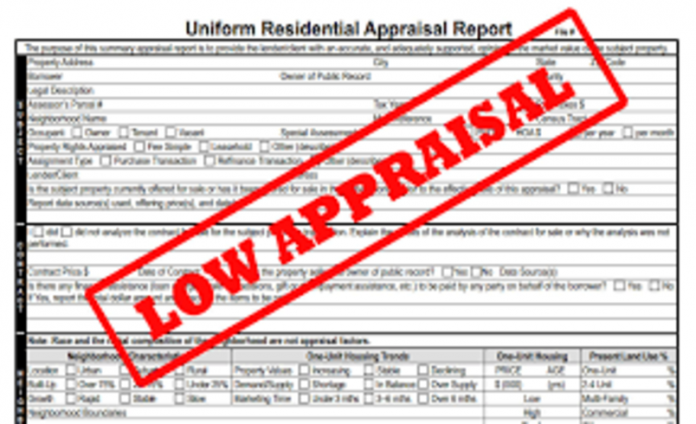Published October 26, 2022
What Happens if a Home Appraisal is Less Than the Sale Price?

Home appraisals don’t always align with what you negotiated for in your contract. An appraiser may appraise a home for higher or lower than your agreed-upon sale price. Finding yourself in this situation is never fun. It can be very stressful for everyone involved.
Ryan Matthews is a real estate agent here at Keller Williams Legacy One Realty. He says, “Low appraisals can be good for some and bad for others.” Whether you find yourself on the seller or buyer side of this situation, here’s what you need to know about the process.
What happens next?
If a home is appraised for less than the agreed-upon price, it’s called a low appraisal. Oppositely, a high appraisal is when the appraisal is more than the agreed-upon price.
Buyers are typically most concerned with low appraisals. That’s because low appraisals open the contract up to more negotiation. According to Ryan, “In Arizona you get five days with the contract and you have 3 options.”
Here are the 3 paths a low appraisal can take:
The seller may come down on their price to meet the appraisal.
Unless you’re offering cash to buy the home, you likely need approval for a loan. If the home is appraised for lower than the agreed-upon price, your loan may not be approved. The seller may come down on the price to continue the sale.
You, the buyer, can add more cash to meet the agreed-upon price.
Because you might not receive approval for a loan much larger than the home’s value, you can add cash to meet the sale price. If you don’t have the extra funds available, you may rely on options 1 or 3 to make the sale happen.
Or you can negotiate and meet in the middle.
Lastly, you and the seller can negotiate to meet somewhere in the middle. This solution will benefit both parties as the sale can continue.
Why would a buyer consider paying more for a house than what it’s appraised for?
One major reason you should consider paying more for a house than it was appraised for is the long-term return on your investment. On average, the value of a home increases over time. If you plan on living there for 5 years or more, you’ll likely recuperate the additional expense of negotiating a new sale price on the home.
It’s also helpful to remember that appraisers are just people. Appraisals may differ from appraiser to appraiser. You may even receive a different appraisal from the same appraiser.
Colleen Bechtel, a Designated Broker with us, says, “We’ve seen as big as a $30,000 difference from one appraiser to another on second appraisals.” Colleen recommends trying to negotiate because the appraised value can vary so much.
If you’re not interested in paying more than what the home was appraised for, you can try and get a different appraiser. You can only do this if you change lenders and have a conventional loan. If you have an FHA loan, the value from the original appraisal stays with the property for 6 months.
What happens if the homebuyer and the seller don’t agree on new terms after a low appraisal?
Following the notification of the appraised value, the purchase contract says you have until the end of 5 days to negotiate new terms. If you don’t reach an agreement, you are left with two options moving forward:
You can pay the original, agreed-upon price.
OR
You can back out of the purchase and get your earnest money back.
Whether you’re going through a high or low appraisal, the process is challenging. That’s why it’s essential to have a professional help you negotiate and guide you through the process. If you have other questions about appraisals, low appraisals, what the process looks like, or anything else, call us at (520) 836-9301. You can also find us on YouTube, where we’ll be happy to respond to any questions or comments you might have.





